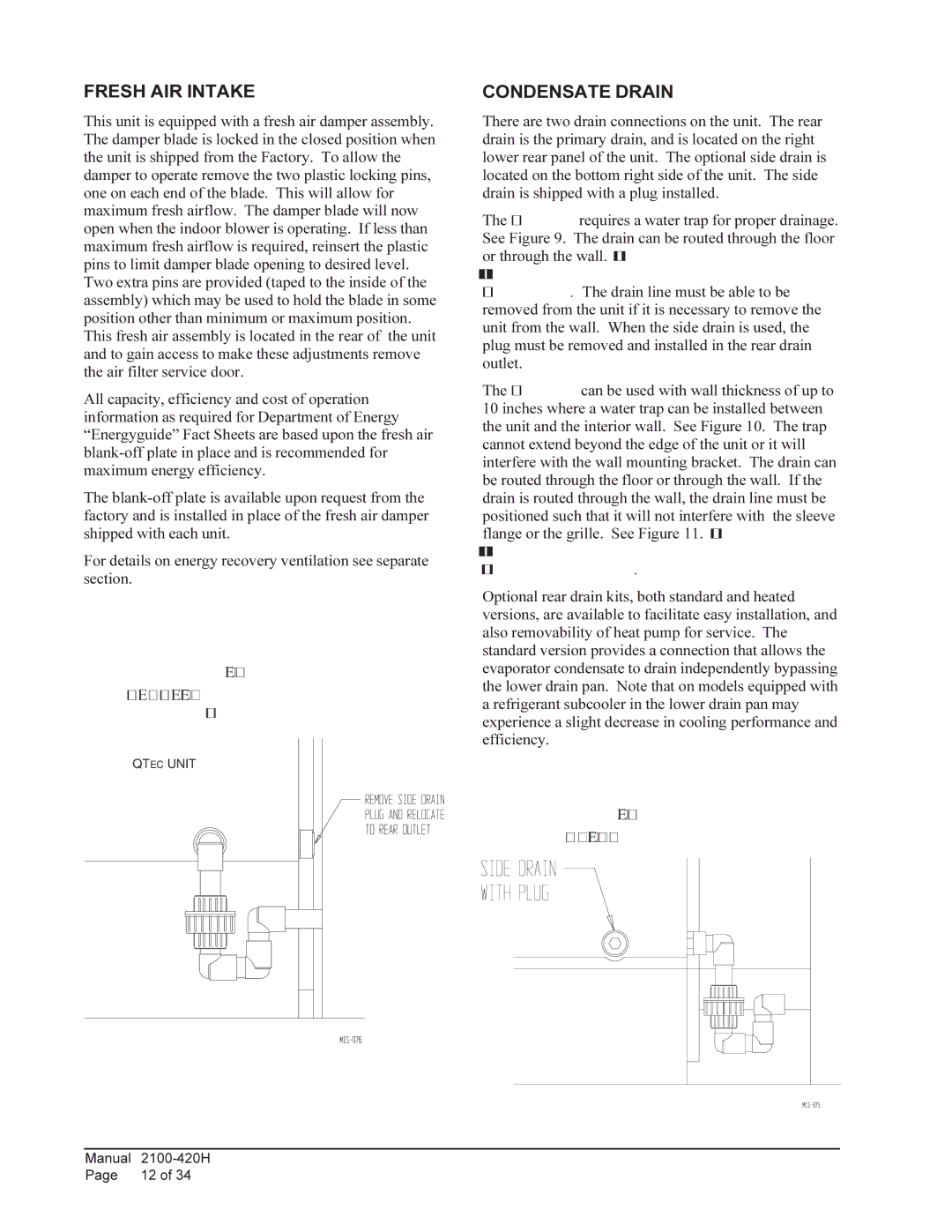QH482, QH243, QH302, QH422, QH602 specifications
Bard has established itself as a leader in the heating, ventilation, and air conditioning (HVAC) industry with its innovative line of products, including the Bard QH series. Models such as QH362, QH602, QH422, QH302, and QH243 showcase the perfect blend of performance, efficiency, and advanced technology.The Bard QH362 is built for both affordability and efficiency, making it ideal for smaller commercial spaces. This model offers a cooling capacity of 36,000 BTUs, providing optimal comfort with minimal energy consumption. Its robust design ensures long-lasting performance, while the air-cooled condenser enhances reliability in various climates.
The QH602 model takes it a step further with enhanced cooling capabilities, boasting a 60,000 BTU rating. This unit is particularly well-suited for larger commercial applications. Its advanced heat pump technology allows for efficient heating and cooling, ensuring indoor comfort year-round. The QH602 features a user-friendly control system that optimizes energy use and simplifies operation.
Next up, the QH422 model is designed for mid-sized commercial environments, offering 42,000 BTUs of cooling power. This model is distinguished by its energy-efficient design, significantly reducing operational costs while maintaining high-performance levels. The QH422 includes a smart thermostat that allows users to monitor and adjust settings remotely, further enhancing energy management.
The QH302 model is perfect for businesses looking for a balance between power and efficiency. With a capacity of 30,000 BTUs, this unit effectively meets the needs of medium-sized spaces. Its compact design allows for easy installation and maintenance, making it a favorite among commercial property managers.
Lastly, the QH243 model rounds out the series with a 24,000 BTU capacity, ideal for smaller commercial applications. This model showcases Bard's commitment to energy efficiency, equipped with environmentally friendly refrigerants and advanced insulation materials that minimize energy loss.
These Bard models feature innovative technologies such as variable-speed fans, which ensure consistent airflow regardless of outdoor conditions. Additionally, noise-reduction technologies provide a quieter operation, creating a more pleasant indoor environment.
In summary, the Bard QH series, including the QH362, QH602, QH422, QH302, and QH243, offers a comprehensive range of HVAC solutions tailored to diverse commercial needs. With their efficient designs, advanced technology, and focus on reliability, these models set the standard for modern heating and cooling equipment.

